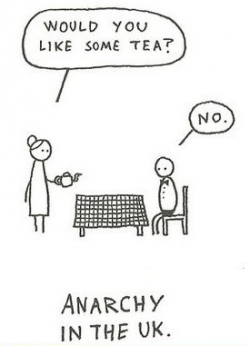I am delighted to write my first ever article for our Aplingo blog. I recently joined the UK team as a Translation Executive and this is my first position as part of a British team. It’s a bit of a cultural shock and I must say, one amusing thing about the UK is its passion for tea. Drinking tea is such a British cliché and yet it is so true. According to the United Kingdom Tea Council, the British drink 165 million cups daily or 60.2 billion per year. We enjoy this delectable drink here at the Aplingo office and I wanted to find out the origin of this tradition and some interesting facts about it.
The myth and the history
Tea was first discovered in China more than 5000 years ago. According to a popular legend, the Chinese emperor Shen Nung was sitting beneath a tree when some of its leaves fell into his hot water. Shen Nung, who was a renowned herbalist, decided to try the infusion that had accidentally been created. The tree was a Camellia sinensis, and the resulting drink was what we now call tea. A variant of this legend tells that the emperor, who had tested all the plants of the universe, ingested by mistake a toxic plant while resting under a tea tree. The emperor chewed a tea leaf and discovered its virtues. No one knows whether those stories are true… But tea drinking certainly became established in China many centuries before it had even been heard of in the west. Tea firstly appeared in Europe in 1560 thanks to Portuguese Jesuit Father Jasper de Cruz. In the 1660s, Catherine of Braganza brought to the English royal court the habit of drinking tea. She was the queen of Charles II and spent her childhood in Portugal, hence her love for tea.
How do you like yours?
Although there are many different teas (approximately 1,500 different varieties of tea, black, green, white, flavoured or scented teas, etc.), black tea is the most popular in the UK – more specifically English Breakfast, traditionally a blend of Assam and Ceylon teas. Tea bags are far more popular than loose leaves; 96% of all cups of tea drunk daily in the UK are brewed from tea bags. According to the UK Tea Council, 98% of people take their tea with milk, but only 30% take sugar in tea.
The health benefits
Tea contains less than half the amount of caffeine found in coffee. It keeps the dentist away as it is a natural source of fluoride that can help protect against tooth decay and gum disease. Tea helps you to stay hydrated and without milk it has no calories. Four cups of tea with milk provides 21% of daily calcium requirement. Tea has potential health benefits for cardiovascular disease and cancer prevention.
For more information about tea I highly recommend the UK Tea Council website http://www.tea.co.uk/. Enjoy your cuppa!




